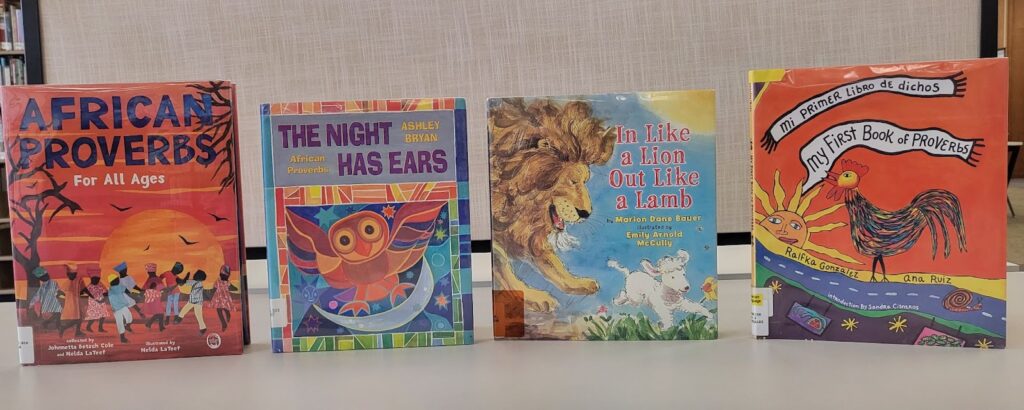
February ends this week and March begins, perhaps as the saying goes, “in like a lion, out like a lamb.”
According to an article on the Farmers’ Almanac website, “people often believed that bad spirits could affect the weather adversely, so they were cautious as to what they did or did not do in certain situations. Those beliefs often included ideas that there should be a balance between weather and life. So, if a month came in bad (roaring like a lion), it should go out good and calm (docile, like a lamb). With March being such a changeable month, in which we can see warm spring-like temperatures or late-season snowstorms, you can understand how this saying might hold true in some instances.”
Will Saline County’s March begin with storms and end in calmness? Since the saying is more like a rhyme than a true weather predictor, only time and the future forecast will tell. But we will know the answer very soon whether our March weather will come in like a lion and out like a lamb. This week with your Salina Public Library card, you can check out a book about the titular proverb as well as other books with sayings such as this one from around the world.
In the children’s picture book “In Like a Lion, Out Like a Lamb” the author Marion Dane Bauer describes in verse the lion that is March weather, which finally gives way to the lamb of spring. This book’s front flap says, “March, personified as a lion, enters a boy’s cozy home and leaves a trail of snow flurries and muddy footprints. The boy calmly observes the pouncing, howling, growling lion until … in comes the lamb – on the crest of a huge sneeze! Escorted by grass, flowers, sunshine, showers, and animal babies large and small, the lamb brings forth spring. The illustrations, a profusion of color and energetic lines, celebrate March, spring, and life itself.”
The first page of the book says, “March comes with a roar. He rattles your windows, and scratches at your door.” Does this description of March make you think of Kansas? It may; rattling windows and scratches at the door definitely remind me of stormy weather. Later the book says, “March comes with winter clinging to his tail. He scatters sleet and sometimes even hail.” Winter can be stubborn to leave in March as late winter storms are not uncommon as many of you reading this may be able to call up to mind one that you remember from personal experience. Later in the book, the lamb with spring weather takes over as it says, “Today the lamb’s in charge of grass and flowers, sunshine and showers: of babies, small and large.” As March ends and spring officially begins on March 20, we will all be hoping for weather that is a visual depiction of the term for spring. And hopefully, the lamb-like weather will stay and the lion will stay asleep for a long time.
To learn about more proverbs, specifically those from Mexico, you can check out “My First Book of Proverbs; My Primer Libro de Dichos”. The book’s front flap says, “In this playful collection of popular Mexican dichos, or proverbs, artists Ralfka Gonzalez and Ana Ruiz bring to life their most favorite sayings – recorded in their travels throughout Mexico and the United States. Filled with wisdom and optimism, these dichos are a joyous celebration of life and culture …” Each page is in Spanish, as well as a translation in English, with a vividly colorful illustration. Author Sandra Cisneros writes an introduction in the book saying, “whether you are a big child or a little child, whether they are familiar or new, dichos will fill you with a wise and foolish laughter.” As I read through the book, I was quite familiar with some such as “the early bird gets the worm” but others were brand new to me such as “a bird in the hand is worth a hundred in the air” and “you only visit the cactus when it’s bearing fruit.” One of the authors and illustrators, Ana Ruiz, says at the end, “Dichos are like the kisses of language. There is one for each occasion and they appear to remind us that we are not alone; sometime, somewhere has already lived the same situation and said something similar about it.” Each saying in this story may spark a memory or provide wisdom for a future situation.
Salina Public Library also has two books about African proverbs that I recommend checking out: “The Night has Ears: African Proverbs” and “African Proverbs For All Ages”.
In “The Night has Ears”, Ashley Bryan illustrated 26 African proverbs. The front flap of the book says, “Having grown up with proverbs, it was no surprise to Mr. Bryan when he began reading African literature to find African proverbs along with African stories. The proverbs grew out of the lives and experiences of the varied African peoples. Each proverb here is credited to a specific tribe, yet, as Ashley Bryan explains, most were known in other tribes as well. And in fact, all are true for people everywhere.” Despite the large distance between Kansas and Africa, we can find universal wisdom in the proverbs of this book. In the book’s introduction, Ashley Bryan says that proverbs give insights into the culture and customs of a people, and seek to raise meaning out of our daily experiences. He instructs the reader to ponder them and have fun searching for as many meanings as they may hold for you. Each page has a proverb with colorful artwork. A few favorites of mine in the collection are, “Never try to catch a black cat at night” from the Krahn people; “The goat is not big in a cow town” from the Vai people; and “Do not try to fight a lion if you are not one yourself” from the Swahili people. Unsurprisingly to anyone familiar with me, all of those involved animals!
In, “African Proverbs For All Ages”, noted anthropologist and educator, Johnnetta Betsch Cole and award-winning author and illustrator Nelda LaTeef invite children and adults to explore and reflect on complex notions about relationships, identity, society, and the human condition. The front flap of the book says, “It has been said that a proverb is a short sentence based on long experience. Whether you’re young or old, proverbs can open your mind to new ways of seeing the world. We underestimate children when we assume they are incapable of understanding metaphors and deeper meanings. Children learn in multiple ways, and for each method by which they learn, they need their imaginations engaged and their visual sensibilities ignited. And as adults, we underestimate ourselves when we allow our lives to be about practical matters only. Proverbs can stir our souls and spark our imaginations.” Therefore no matter how old you are, this book is for you!
In this book, four African proverbs are presented with each illustration and then readers may choose which proverb best narrates the illustration, making this book interactive. In the prologue, author Johnetta Betsch Cole notes “Readers may be reminded of sayings from their own cultures that offer the same teachings as the proverbs in this book but with different words. In this way, proverbs are conveyors of insights that may be universally accepted as valid.” A few of my favorite proverbs in this collection are, “Wisdom is like a baobab tree; no one individual can embrace it”; “The same sun that melts the wax hardens the clay”; “A roaring lion kills no game”; “Not everyone who chased the zebra caught it, but the one who caught the zebra chased it”; “When the mouse laughs at the cat, there is a hole nearby”; “Between true friends, even water drunk together is sweet enough”; “If you think you are too small to make a difference, you haven’t spent a night with a mosquito”; “and Like the turtle, each one of us must stick our neck if we want to go forward.” Well, it looks like I had more than a few favorites as there is an abundance of great proverbs in this collection! At the end of this book, readers will learn which proverb was the true inspiration for each illustration but proverbs and art are always open to interpretation and conversation so it is perfectly all right if you thought a different proverb fit better for the illustration on the page!
“Bartlett’s Familiar Quotations: A Collection of Passages, Phrases, and Proverbs Traced to Their Sources in Ancient and Modern Literature” spans 5,000 years of art, politics, science, religion, philosophy, and entertainment, giving us a vast written panorama of our world. Readers will find quotes ranging from the Bible to Barack Obama, from Shakespeare to South Park. The index is arranged by keywords; the spelling and capitalization in the index entry are those of the quotation. While the quotations are not always proverbs such as “in like a lion, out like a lamb”, you can definitely find several in this gigantic book that is over 1,000 pages long and filled with various quotations from real people and fictional characters.
While we wait to see if March truly comes in like a lion and out like a lamb, come to Salina Public Library and check out many other sayings such as this one that may spark your curiosity and or stir some emotions within you.



About The Author: Ashley
Ashley is an Information Services Librarian at Salina Public Library. Ashley graduated from the Utah cohort of Emporia State University with her Master's in Library Science and moved to Salina, Kansas for her current job soon after her graduation ceremony in January 2017. Ashley is married to James Will and they have three cats. Ashley can be reached at infoservices.ashley@salinapublic.org
More posts by Ashley